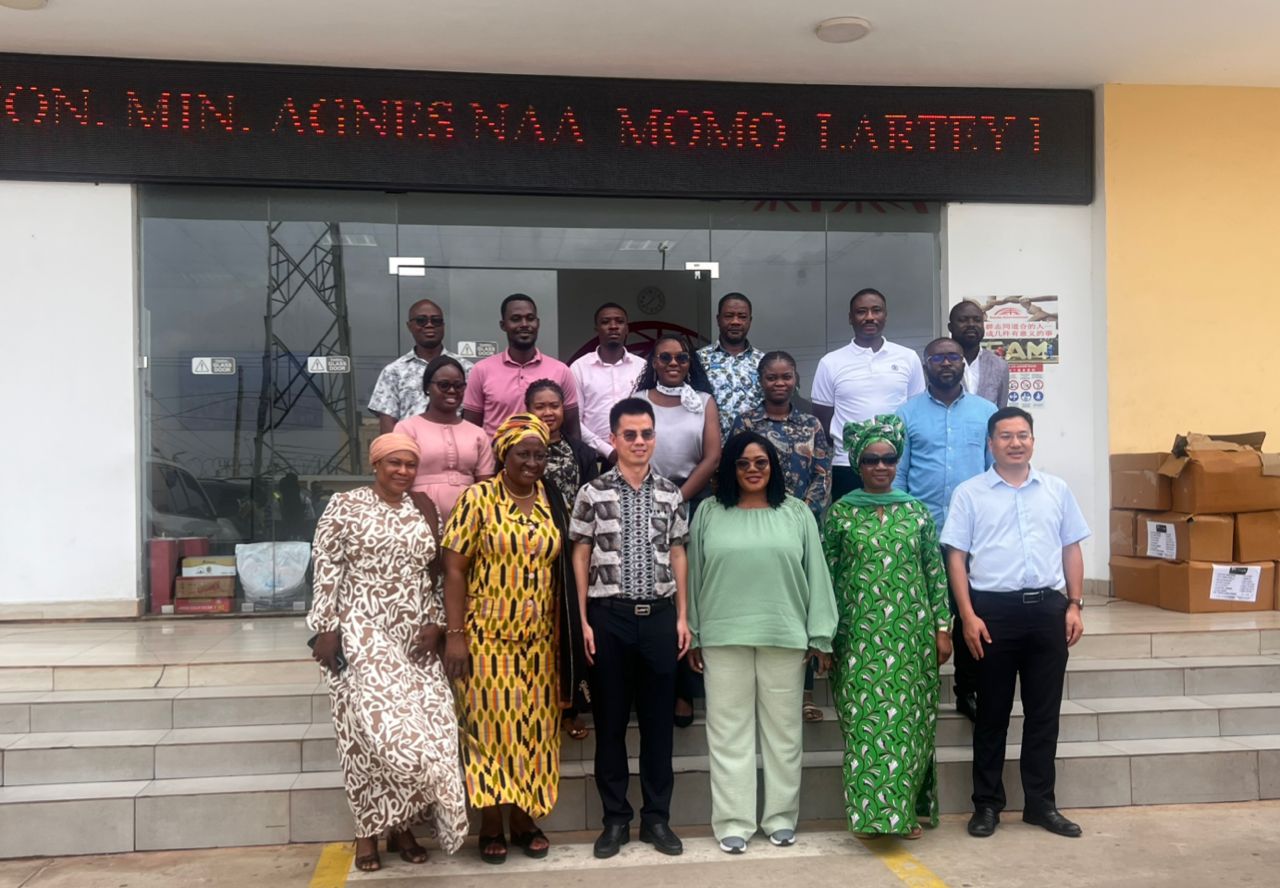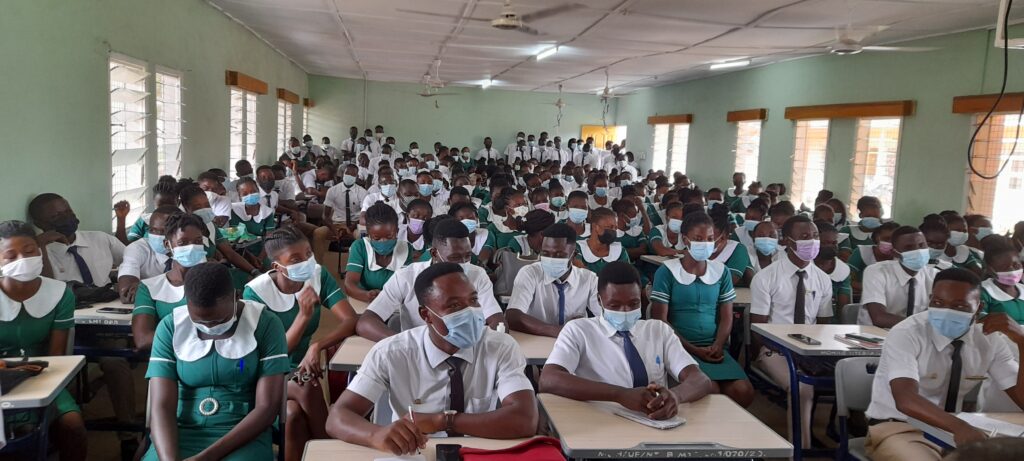The Minister for Gender, Children and Social Protection, Dr. Agnes Naa Momo Lartey, together with executives of her ministry and coordinators of the School Feeding Programme, on Tuesday, September 16, paid a working visit to Sunda International Ghana, producers of Softcare sanitary pads, Kleesoft washing powder, soaps, and other consumer goods.

The visit formed part of the Ministry’s engagement with private sector players under the government’s Reset Agenda, which seeks to strengthen partnerships for social and economic development.
Dr. Lartey commended Sunda International for its impressive employment record, noting that of the company’s 3,700-plus employees, 95% are Ghanaians.
She also praised the company for maintaining a 50/50 gender staffing ratio, describing it as consistent with the Affirmative Action Bill aimed at bridging Ghana’s workplace gender gap.
Reaffirming government’s commitment to ending period poverty, the Minister stressed that the Free Sanitary Pad Initiative, launched under President John Dramani Mahama, is about more than distribution, it is about protecting young girls from vulnerabilities.

She emphasized that working with local manufacturers such as Sunda International is critical to the programme’s success.
Speaking to TV XYZ/Power FM’s Yaa Adubea Anim-Piesie, Dr. Lartey expressed satisfaction with the company’s capacity.
“I have seen the efforts they have made right from the beginning, and the quality of products they now produce, not just sanitary pads, but also wipes, diapers, detergents, and more. Today we have seen that they have the capacity, in fact, more than enough capacity,” she remarked.
She also acknowledged some of the challenges the company faces, including tax-related issues, and assured that her ministry will work with relevant state agencies to explore possible relief, particularly on essential products such as diapers.
For his part, Sunda Ghana Managing Director, Mr. Kofi Baako, underscored the urgent need to expand access to sanitary pads across Sub-Saharan Africa, where penetration rates remain as low as 30–40%, compared to 90% in Western countries and 80% in China.
He expressed optimism that stronger collaboration with government would help scale up production and distribution to improve access among girls in Ghana.
Sunda International operates in three key sectors, building materials, fast-moving consumer goods, and hardware, but continues to face challenges, including the proliferation of counterfeit products.
Source: Myxyzonline.com/Belinda Anim-Piesie





